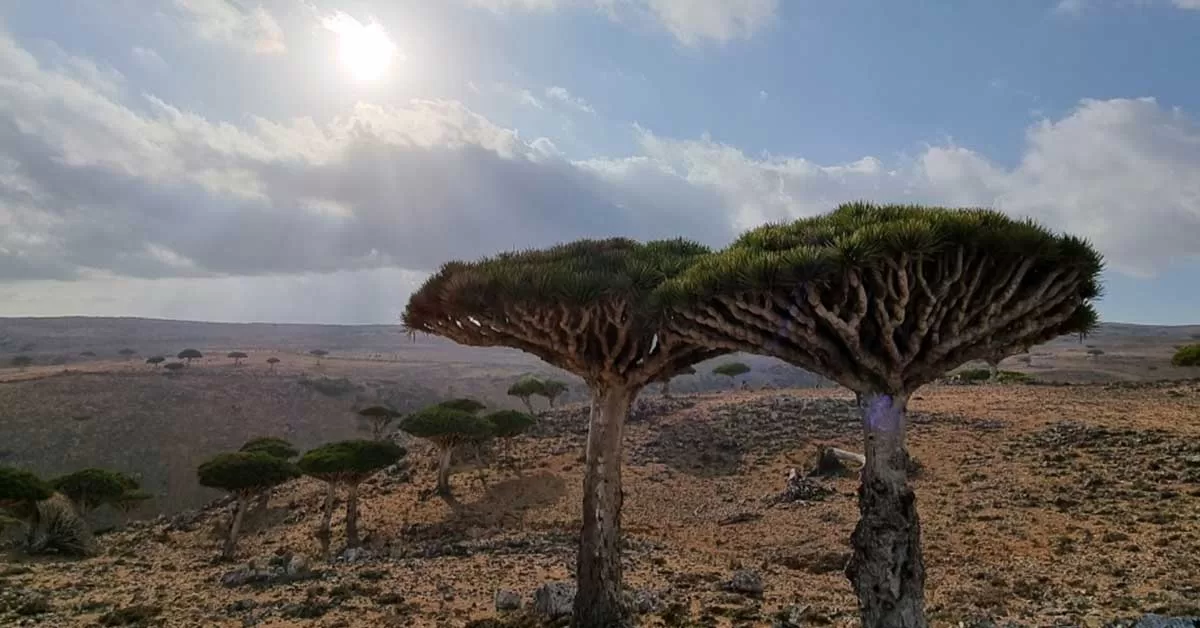Hikers will find Socotra to be a veritable “Garden of Eden.” The island provides an unmatched trekking experience with its bizarre, otherworldly landscapes and a wealth of endemic plants and animals. The true charm of Socotra can be discovered by exploring its mountainous interior, even though many tourists only visit the well-travelled coastal attractions. These are some of the top hiking destinations that will astound adventure seekers.
The Haggeher Mountains: A Hiker’s Ultimate Challenge
The Haggeher Mountains (sometimes spelt Hajhir) are the main attraction for serious hikers. The island’s permanent streams and life-giving rain originate from these angular granite peaks, which are frequently covered in clouds. The best way to experience Socotra’s distinctive ecosystems is to go on a multi-day trek here.
- Skand Peak
The island’s highest point, Skand provides a strenuous climb with a substantial reward. You travel through constantly shifting landscapes, from dense, oddly shaped vegetation at the summit to lush, green valleys at lower elevations.

- Daneghan to Wadi Dirhur
This is a classic multi-day route. The trek takes you through beautiful mountain passes and ends with a descent into the dramatic Wadi Dirhur canyon. You will see sweeping views, find hidden swimming holes, and connect deeply with the island’s rugged interior.

The Diksam Plateau and Wadi Dirhur A Canyon of Dragon’s Blood Trees
The Diksam Plateau is a must-see for anyone visiting Socotra. This high limestone plateau has the largest concentration of the island’s most iconic plant, the Dragon’s Blood tree. Walking among these prehistoric, umbrella-shaped trees feels like stepping into a fantasy novel.
- The Diksam Canyon Hike
From the plateau, you can hike down into the beautiful Wadi Dirhur, a deep canyon that looks like a giant has ripped the earth apart. A stream flows through the canyon, creating several clear pools that are great for a swim during your hike. The difference between the dry, old trees on the plateau and the green, palm-filled canyon floor below is stunning.

Homhil Protected Area: An Infinity Pool in the Sky
Homhil is one of Socotra’s most well-known protected areas, and for good reason. Hiking here is relatively easy but very rewarding, and you can see a beautiful variety of native plants.
- The Infinity Pool Hike
A short but steep climb leads to a natural infinity pool carved into the rock, offering a breath-taking view of the Arabian Sea. It’s an ideal place to cool off and enjoy the stunning scenery. Along the trail, unique bottle trees and frankincense trees surround you, enhancing the extraordinary atmosphere.

Hoq Cave A Hike into the Heart of the Island
For a different kind of hiking experience, go to Hoq Cave. The walk to the entrance is a steep climb that takes about an hour, but the reward is great.
- Exploring Hoq Cave
The cave is more than 3 kilometres deep. A trail leads about a kilometre into its vast interior. Inside, you will find impressive stalactites and stalagmites, ancient inscriptions, and a deep sense of history. It’s a humid but unforgettable journey that offers a nice break from the sun.

Important Considerations for Socotra Hiking
- Local Guides: Socotra’s trails are not marked. Navigating the terrain requires local knowledge. Our guides will look after you all the way, we will ensure your safety and offer valuable insights into the island’s culture and nature. Check out our Socotra Tours.
- Trekking Difficulty: The island has hikes for every fitness level. Some are short and easy, while others, such as the Haggeher Mountains, need good fitness and previous trekking experience.
- Best Time to Visit: The cooler months from November to March are usually the best for trekking. However, the weather can differ by region. The monsoon season from May to September is generally not recommended for tourism.

